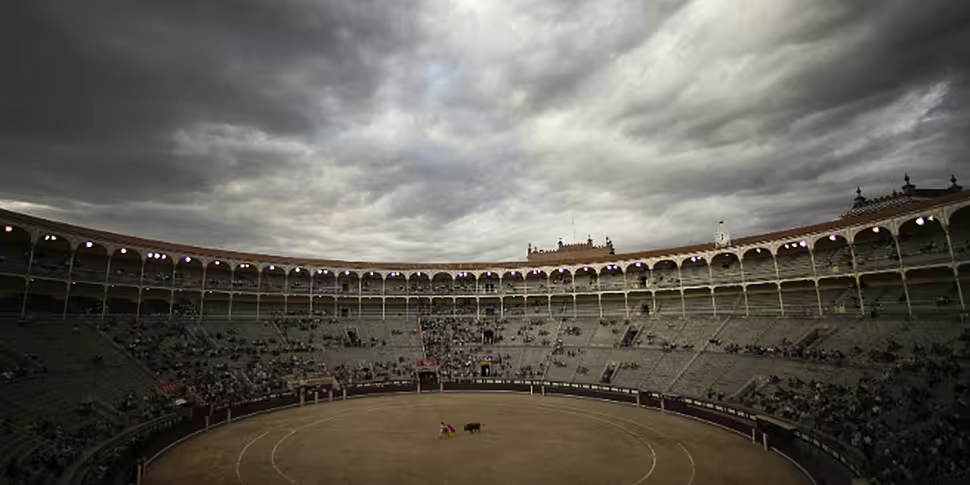As it faces increasing political pressure, outrage from animal rights activists and falling attendances, Spain's bullfighting lobby has decided to argue for the controversial pastime's continuing existence on the apparently sizeable economic benefits it brings to the nation.
The National Association of Bullfighting Event Organisers (ANOET) is arguing in a new report that bullfighting contributed €1.6 billion to Spain in 2013 (the most recent year for which official figures are available).
It is specifically targeting the accusation that the European industry receives €600 million in public funding every year, a figure often cited by the likes of Peta.
Of the €1.6 billion, ANOET says that bullfighting was directly responsible for a €423 million injection into the Spanish economy in 2013, with the remainder making up €361 million for transport, hotels and catering, and a whopping €820 million due to supposed knock-on effects.
Whether those earnings for the indirect likes of hotel bookings can be directly attributed to people flocking to see the slaughter of over 10,000 bulls annually is open to debate.
ANOET also claims that bullfighting has employed 57,000 people directly, as well as generating 142,00 indirect jobs. Their data also shows that bullfighting attracted 24.8 million spectators, generating €43.86 million euros in sales tax.
The San Isidor festival, which takes place in Madrird each May, took €61.8 million in 2013, while the famous Pamplona event took €26.2 million.
The report says:
"It created three times as much sales tax as Spanish cinema (€14.5 million) and more than the theatre (€35.42 million)".
According to ANOET, bullfights receive a mere €30,000 from the national government each year, along with €25.5 million from local governments.
This flies in the face of a 2013 report from Spanish European Parliament deputies that put the amount bullfight receives from the Spanish taxpayer at €571 million. They also pointed to the €129.6 million funding from the EU.
Last year, the European Parliament voted in favour of amending the 2016 budget so that money set aside for the Common Agricultural Policy could not be used for the financing of "lethal bullfighting activities".
Regardless of what side of the widely-differing debate you take, what can not be argued is that the industry has been in decline for some time.
Spain's Culture Ministry reported that the number of bullfights held annually fell 60% in the seven years to 2014 - from 953 to 398.
Pro-bullfighting groups responded that this merely reflected the country's economic struggles as a whole.
President of the Union of Fighting Bull Breeders (UCTL) Carlos Núñez said:
"Just like other cultural activities, we have been affected by the crisis".
Animal rights groups, however, see a terminal decline.
According to a December 2015 poll published by Ipsos MORI, only 19% of Spaniards aged between 16 and 65 are in favour of bullfighting. That figure in favour stood at 30% in 2012.
Those firmly against the spectacle now stands at 58%.
While the right-wing People's Party, recently in government four years, has been a staunch defender of the traditional events, the 'new left' (which won big in the December election that has yet to result in a new government) are backing the majority view, while left-controlled cities have already taken action against bullfighting.
Last summer, the north-west city of A Coruna pledged to find a better use for the €50,000 it was giving in bullfight subsidies, while the small town of Villafranca de los Caballeros redirected €18,000 away from bullfights and put the money towards its children's education.
The newly-elected socialist mayor Julián Bolaños commented at the time:
"It’s a question of priorities. There is a lot of unemployment in this town and many people simply don’t have money to buy school supplies for their children".
Bolaños also referred to the bullfight as a "cruel spectacle".
The country's position on a divisive cultural event it has been tied to since medieval times, at least, will become clearer once a permanent government is in place.
The bullfighting lobby can shout about economic benefits, but time does not appear to be on its side. It is unlikely, however, to go down without a nasty fight.









